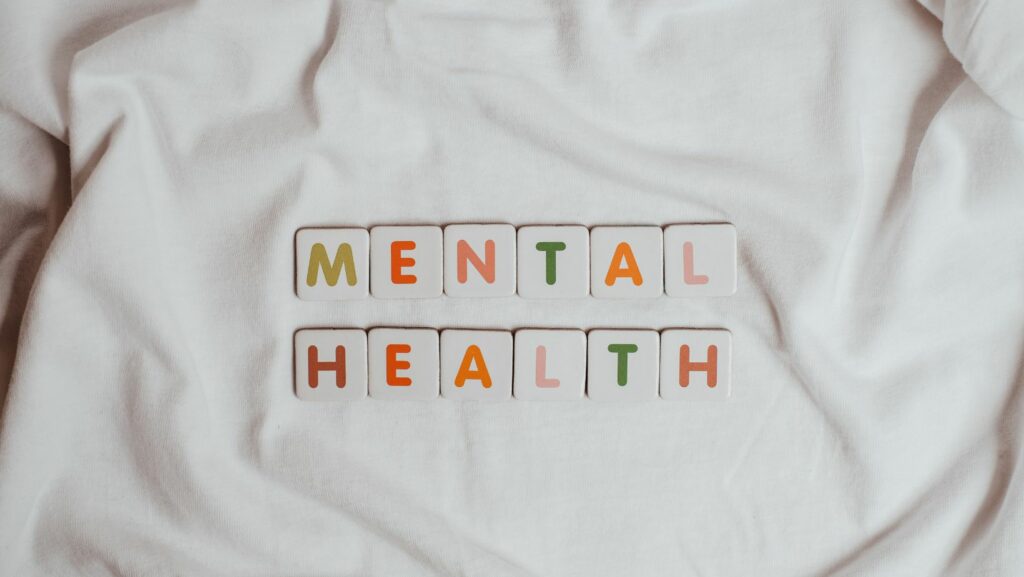
While Xanax is commonly prescribed to treat anxiety, it is not typically recommended for the treatment of depression. In fact, taking Xanax for depression can be risky and may cause more harm than good. Xanax is a short-acting benzodiazepine that can cause dependency and addiction when taken long-term. It can also cause a range of side effects, including drowsiness, dizziness, blurred vision, and confusion. Additionally, Xanax can interact with other medications and substances, such as alcohol, increasing the risk of negative outcomes.
If you’re struggling with depression, it’s important to speak with a healthcare provider about appropriate treatment options. There are many safe and effective treatments available, including therapy, medication, and lifestyle changes. Pro tip: Always consult with a healthcare provider before taking any medication, as they can help you weigh the benefits and risks based on your particular situation.
Does Xanax Help With Depression
Xanax is a commonly prescribed medication for depression, but it’s important to understand the risks associated with this powerful drug. This article will discuss how Xanax works, the potential risks of taking it for depression, and alternative treatments for depression. So, let’s explore the ways Xanax may help and hinder depression.
How Xanax Works For Depression
Xanax is a medication that can be prescribed to treat depression and anxiety disorders. The active ingredient in Xanax, alprazolam, is a type of benzodiazepine drug that affects the brain’s neurotransmitters to promote feelings of relaxation and calm.
While the drug can be an effective treatment option, it also carries some risks with it. Xanax can be addictive, and some individuals may become dependent on the medication to manage their symptoms. Taking higher doses than prescribed or combining the drug with other substances can also lead to dangerous side effects, such as respiratory depression and overdose. Therefore, it’s important to speak with a doctor before taking Xanax and fully understand the risks associated with it. In some cases, therapy and lifestyle changes may be just as effective in treating depression and anxiety without the risk of dependence or other side effects.
Side Effects and Risks of Xanax
Xanax is a prescription medication that belongs to a class of drugs known as benzodiazepines. When taken as directed, Xanax is a safe and effective treatment for anxiety and panic disorders. However, using Xanax for depression is not recommended and may have potential risks and side effects.
Here are some of the risks and side effects associated with Xanax usage:
- Addiction and dependence: Long-term use of Xanax can lead to addiction and dependence, making it difficult to stop using.
- Withdrawal symptoms: Abruptly stopping Xanax can cause withdrawal symptoms such as seizures, tremors, and insomnia.
- Drowsiness and dizziness: Xanax can cause drowsiness, dizziness, and impaired coordination, which can increase the risk of falls and accidents.
- Cognitive and memory problems: Prolonged use of Xanax can cause cognitive and memory problems, including difficulty concentrating and forgetfulness.
- Depression: Xanax is not approved for the treatment of depression and should not be used to manage depressive symptoms.
Pro tip: Always consult with your healthcare provider before taking any medication to ensure proper usage and avoid potential risks and side effects.
Alternatives to Xanax for Depression
Xanax, when taken alone, is not an effective treatment for depression. In fact, it could even worsen symptoms of depression and anxiety in some individuals. That being said, there are several alternatives to Xanax for depression that are both safe and effective. Here are some options:
- Therapy: Therapy, particularly cognitive-behavioral therapy, has been proven to be an effective treatment for depression. It focuses on changing negative thought patterns, behaviors, and beliefs that contribute to depression.
- Exercise: Research has shown that exercise can be just as effective as medication in treating depression. Exercise releases endorphins, the body’s natural feel-good chemicals, and improves mood and overall well-being.
- Mindfulness and meditation: Mindfulness and meditation techniques can help reduce symptoms of depression by increasing awareness of thoughts and feelings, and promoting self-love and acceptance.
- Herbal remedies: Some herbs, such as St. John’s wort and omega-3 fatty acids, have been shown to have positive effects on mood and alleviating depression symptoms.
It is always best to consult with a healthcare professional to determine the most appropriate treatment plan for depression.

Risks Associated With Using Xanax For Depression
Xanax is a commonly prescribed antidepressant and anti-anxiety medication. It is often prescribed to treat symptoms of depression, but there are certain risks associated with taking Xanax for depression. In this article, we will look at the potential risks to be aware of when using Xanax to treat depression.
Addiction and Withdrawal
Xanax is a prescription drug used to treat anxiety and panic disorders, but it also has a sedative effect that can help relieve symptoms of depression. However, Xanax has a high potential for addiction and withdrawal, which can have serious and even life-threatening consequences.
The risks of using Xanax for depression include:
- Addiction: Xanax has a high potential for addiction, especially when taken for an extended period or in higher doses than prescribed. Addiction can lead to physical and mental health problems, relationship and work issues, and financial struggles.
- Withdrawal: Suddenly stopping Xanax use can cause withdrawal symptoms such as anxiety, restlessness, insomnia, seizures, and even death in severe cases.
Other risks associated with Xanax use include drowsiness, dizziness, memory problems, respiratory depression, and overdose. Therefore, it is essential to only take Xanax as prescribed and under the guidance of a healthcare professional. If you experience any adverse side effects or withdrawal symptoms, seek medical help immediately.
Adverse Effects on Mental Health
While Xanax is primarily prescribed to treat anxiety disorders, some doctors prescribe it for depression. However, there are potential risks and side effects associated with using Xanax for depression. Xanax is a benzodiazepine that works by enhancing the effects of a neurotransmitter in the brain that has a calming effect. But, it is not a first-line treatment for depression, and there is a risk of dependence, addiction, and withdrawal symptoms. Furthermore, long-term use of Xanax can lead to a decline in cognitive functions, memory impairment, and changes in mood. Xanax can also cause dizziness, drowsiness, and fatigue, which can exacerbate symptoms of depression.
In addition, Xanax does not address the underlying causes of depression and does not provide a long-lasting solution to the problem. Therefore, it is important to consult with a healthcare professional to determine the most appropriate treatment for depression based on the individual’s circumstances and medical history.
Pro tip: Always follow your doctor’s instructions when taking any medication and be aware of the potential risks and side effects.
Risk of Overdose
Yes, there is a risk of overdose associated with using Xanax for depression. Xanax, also known as alprazolam, is a benzodiazepine drug that is commonly prescribed to treat anxiety and panic disorders. It is not approved by the FDA for treating depression, and the use of Xanax for this condition can be dangerous.
The risk of overdose increases when Xanax is taken in larger doses, more frequently, or for longer periods than prescribed. Symptoms of Xanax overdose include confusion, coordination problems, slowed breathing, and loss of consciousness. Overdose can be fatal, especially when combined with other substances such as alcohol.
Xanax should only be taken as prescribed by a doctor and under close medical supervision. There are other medications and therapies available that are safer and more effective for treating depression. Consult with a mental health professional to explore alternative treatments for depression.
Pro Tip: If you or a loved one is struggling with depression, seek professional help from a mental health provider to develop a treatment plan that is safe and effective for your unique needs.
Safety Precautions for Taking Xanax for Depression
Use of Xanax for the treatment of depression is becoming increasingly common, as its effectiveness in relieving depression symptoms is well established. However, there are some risks associated with taking Xanax to treat depression that should be considered before taking it. In this article, we will discuss the safety precautions for taking Xanax for depression.
Consulting a Doctor
Xanax, although an effective medication for treating anxiety, is not recommended for depression, as it can cause adverse effects and even worsen the symptoms.
Here are a few safety precautions for taking Xanax for depression:
- Xanax should be prescribed by a doctor only after assessing the patient’s mental and physical health.
- Patients should disclose their medical history, including any substance abuse, to their doctor.
- The dosage of Xanax should be as prescribed by a doctor and should not be altered without medical supervision.
- Xanax can cause side effects such as dizziness, drowsiness, and impaired coordination, and it can interact with other medications, such as antidepressants and opioids, so it is vital to consult a doctor before starting Xanax.
- Instead of relying solely on Xanax for depression, other options, such as psychotherapy and lifestyle changes, should be explored.
Pro Tip: Always be honest with your doctor about your medical history and current medications to avoid any adverse effects.

Regular Check-Ups During Medication
It is important to have regular checkups while taking Xanax for depression to ensure that the medication is working effectively and to monitor any potential risks or side effects. Some risks associated with taking Xanax for depression include drowsiness, dizziness, confusion, and impaired coordination. Moreover, Xanax is highly addictive and can have negative effects on mental health if misused.
To avoid these risks and ensure the most effective treatment, it is essential to have regular appointments with a healthcare provider, and to follow their recommended dosage and usage guidelines. Regular checkups can help detect any issues early on, and provide the opportunity to adjust treatment as needed. In addition, it is important to be aware of any changes in mood, behavior or any side effects, and to discuss them with your healthcare provider as soon as possible.
Discontinuing Xanax Gradually
Xanax is a potent benzodiazepine drug often prescribed to treat anxiety and panic disorders. Those using Xanax for depression should proceed with caution and discontinue use gradually to prevent unpleasant withdrawal symptoms.
Here are some safety precautions to take while using Xanax for depression:
- Always follow your doctor’s instructions and dosage guidelines.
- Never mix Xanax with other drugs or alcohol, as this may cause dangerous interactions.
- Do not abruptly stop taking Xanax, as this can lead to withdrawal symptoms such as seizures, tremors, and anxiety.
- Instead, consult with your doctor to create a tapering schedule that gradually decreases your Xanax dosage over time. This will give your body time to adjust and reduce the risk of withdrawal symptoms.
- Xanax can be effective for depression in the short term, but it is not a long-term solution. Speak with your doctor about alternative treatment options such as therapy, lifestyle changes, or other medications.
Pro Tip: If you experience severe withdrawal symptoms, seek medical attention immediately to prevent any complications.
Conclusion and Final Thoughts
In conclusion, while Xanax may provide short-term relief for symptoms of anxiety, it is not recommended as a long-term treatment for depression due to the risks associated with its use. Xanax is a benzodiazepine drug that can be habit-forming, leading to dependence and withdrawal symptoms if misused or abruptly stopped.
Furthermore, while Xanax may initially help with symptoms of depression, it does not address the underlying causes of the condition, and long-term use may actually worsen depressive symptoms. If you are struggling with depression, it is important to seek the help of a mental health professional who can provide a comprehensive treatment plan that addresses your specific needs and concerns.
Pro tip: Never self-medicate and always consult with a medical professional before taking any medication for mental health conditions.










